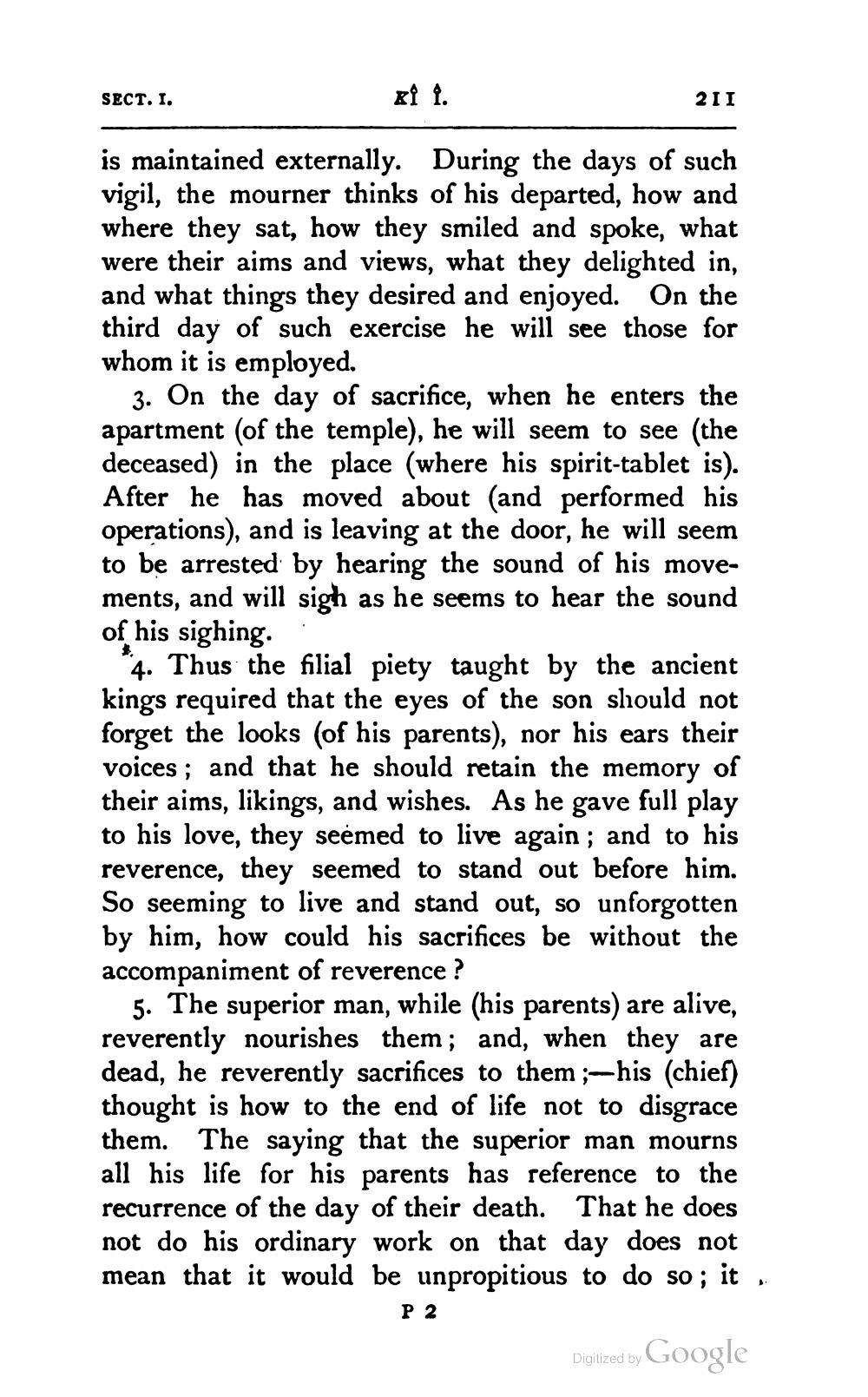________________
SECT. I.
RÎ 1.
211
is maintained externally. During the days of such vigil, the mourner thinks of his departed, how and where they sat, how they smiled and spoke, what were their aims and views, what they delighted in, and what things they desired and enjoyed. On the third day of such exercise he will see those for whom it is employed.
3. On the day of sacrifice, when he enters the apartment (of the temple), he will seem to see the deceased) in the place (where his spirit-tablet is). After he has moved about (and performed his operations), and is leaving at the door, he will seem to be arrested by hearing the sound of his movements, and will sigh as he seems to hear the sound of his sighing.
4. Thus the filial piety taught by the ancient kings required that the eyes of the son should not forget the looks (of his parents), nor his ears their voices; and that he should retain the memory of their aims, likings, and wishes. As he gave full play to his love, they seemed to live again ; and to his reverence, they seemed to stand out before him. So seeming to live and stand out, so unforgotten by him, how could his sacrifices be without the accompaniment of reverence ?
5. The superior man, while (his parents) are alive, reverently nourishes them; and, when they are dead, he reverently sacrifices to them ;-his (chief) thought is how to the end of life not to disgrace them. The saying that the superior man mourns all his life for his parents has reference to the recurrence of the day of their death. That he does not do his ordinary work on that day does not mean that it would be unpropitious to do so; it ,
P 2
Digitized by Google




